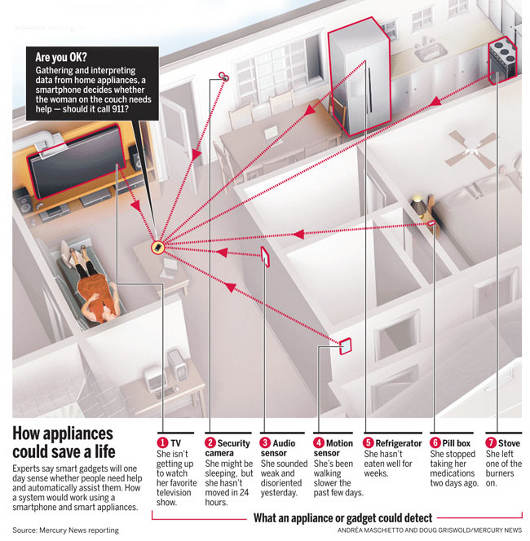Communications of the ACM
Smart Gadgets May One Day Anticipate Our Needs
Silicon Valley researchers predict that future consumer gadgets, embedded with sophisticated sensors and carefully designed computer software, will be able to anticipate and fulfill users' needs without having to be told.
Intel researchers say that gadgets will eventually be able to read their owner's emotions. For example, a recent Intel study explored gadgets that detect mood swings "while people are driving, singing, chatting with friends, attending a boring meeting, and even while going to the dentist." Researchers at Japan's Hokkaido University recently studied devices that could serve as "artificial companions for elderly and lonely people" and car navigation equipment that could "entertain drivers by talking and possibly by joking." Oregon Health & Science University researchers have developed a smart pill that can detect the onset of dementia in older people by recording whether the patient takes their medicine.
Meanwhile, the U.S. Defense Advanced Research Projects Agency wants to develop computerized assistants for military personnel that "can reason, learn from experience, be told what to do, explain what they are doing, reflect on their experience, and respond robustly to surprise."
 Credit: Mercury News reporting Credit: Mercury News reporting |
View Full Article
Abstracts Copyright © 2010 Information Inc., Bethesda, Maryland, USA 
No entries found